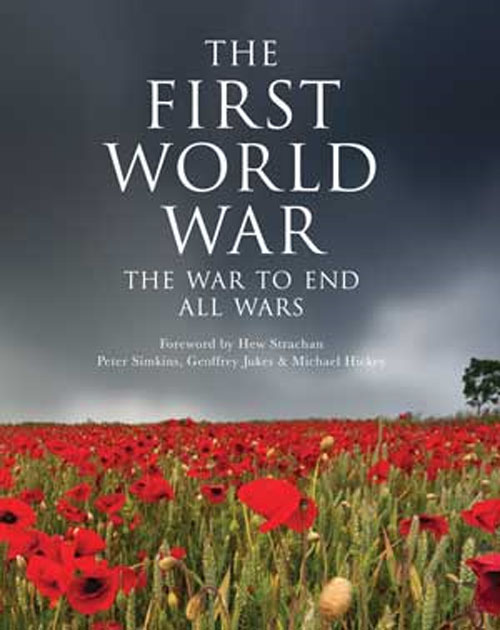The First World War: The War to End All Wars
Book Review

The First World War: The War to End All Wars, Peter Simkins, Geoffrey Jukes & Michael Hickey, 2013, Osprey Publishing, Oxford, 364 p. £25.00. ISBN: 978-1-78200-280-2.
With the forthcoming Centenary of World War I there will be many books about its course. The authors have produced a detailed and well-researched account of the causes and events of this conflict. The book is divided into sections, based on ‘The Fronts' - Western, Eastern etc. Gradually, the war extended into most of Europe and involved many overseas lands as well.
There had not been a major European conflict since 1815 and, it was generally assumed that the war which began in August 1914 would only be a short one (‘Over by Christmas'). Very few foresaw the effects of industrial power as applied to weapons, which consumed human lives on a massive scale. Britain became involved in defence of neutral Belgium, violated by German forces in their desire to destroy the French. In 1914, we were the only major combatant without conscription, but the losses incurred forced its introduction by 1916.
The book shows clearly how the stalemate in the west developed, with its huge loss of life for the British, French and Germans, in battles such as Ypres, Verdun, the Somme (July 1st 1916 is the worst disaster ever suffered by the British army) and Passchendaele. The lives of soldiers in the trenches are well contrasted with those of civilians and there are interesting portraits of ordinary individuals. The final Allied victory in the West in 1918 is well analysed.
Throughout, the book has useful maps and contemporary photographs. The Eastern Front, involving Germany and Austria-Hungary fighting the huge Russian army is also well described. After some initial success, Russia collapsed in 1917, leading to the Bolshevik Revolution, which affected all the armies. The Middle East campaigns, particularly the war against the Ottoman Turks, are also described, giving useful background to today's problems.
As the title shows, it was believed in 1918 that the whole experience had been so awful that there would never be another war. Sadly, it was to be just over 20 years later when another European conflict broke out on an even larger scale. Overall, the authors have produced a creditable survey of what is a very complicated subject indeed. As a start for study of this war, or as a refresher of previous knowledge, it is well recommended.

